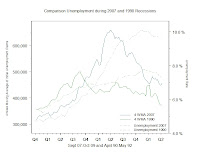"People ask why I want to take toys out of the hands of children," said Yeager, who is president of the Santa Clara County Board of Supervisors. "But we now know that 70% of the kids that are overweight or obese will be overweight or obese as adults. Why would we want to burden anybody with a lifetime of chronic illness?"Mr. Yeager, children's weight, other than your own, is none of your business. Parents know the needs of their children and love them more than you do. The logic of claiming a right to regulate diet because taxpayers are forced into paying healthcare costs of others is backwards. The federal government limits taxpayers' freedom by forcing them to pay for the healthcare of others and you top it off by limiting the freedom that people have to buy products from fast food restaurants? Two wrongs don't make a right. A better response would be to oppose healthcare reform because it restricts freedom.Taxpayers also fund education. Does that mean that you should limit the sale of televisions, computers, game systems, software and other products that would conflict with society's goal to educate its citizens? By the way, limiting access to these products would also give children more time to exercise to fight obesity.
"We're responsible for paying for healthcare in the whole county," Yeager said. "We pay close to $2 billion annually on healthcare, and the costs have done nothing but rise." A big part of the increase, he said, is costs related to obesity.
Your arguments are unconvincing on lesser grounds as well. According to the Center for Disease Control and Prevention, only 11% of children ages 2 to 5 were overweight (all data is from 2005 to 2006). In your effort to take the freedom of parents with overweight children, you are taking the freedom of the majority of parents, approximately 79%, who do not have overweight children. Sixty seven percent of American adults are overweight. If 70% of the 11% of children who are overweight will be overweight as adults, then 66% of the 89% of children who are not overweight will also be overweight as adults. The difference is thin and the problem is with adults, not children.
Finally, and least of all, you may wish to observe the eating habits of children whose parents buy these meals. They often open the box, pull out the toy, eat a fry or two and run to the play equipment for lots of good exercise. They come back with the toy and play with it. The parents end up eating most of the meal. That is why the parents are fat and not the children.
Read more!





